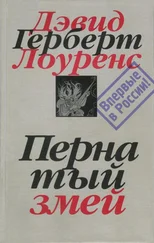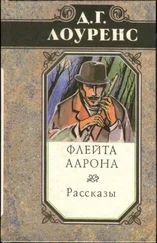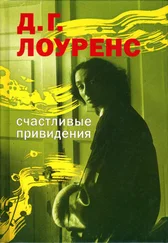Дэвид Лоуренс - Sons and Lovers
Здесь есть возможность читать онлайн «Дэвид Лоуренс - Sons and Lovers» весь текст электронной книги совершенно бесплатно (целиком полную версию без сокращений). В некоторых случаях можно слушать аудио, скачать через торрент в формате fb2 и присутствует краткое содержание. Жанр: Старинная литература, на английском языке. Описание произведения, (предисловие) а так же отзывы посетителей доступны на портале библиотеки ЛибКат.
- Название:Sons and Lovers
- Автор:
- Жанр:
- Год:неизвестен
- ISBN:нет данных
- Рейтинг книги:3 / 5. Голосов: 1
-
Избранное:Добавить в избранное
- Отзывы:
-
Ваша оценка:
- 60
- 1
- 2
- 3
- 4
- 5
Sons and Lovers: краткое содержание, описание и аннотация
Предлагаем к чтению аннотацию, описание, краткое содержание или предисловие (зависит от того, что написал сам автор книги «Sons and Lovers»). Если вы не нашли необходимую информацию о книге — напишите в комментариях, мы постараемся отыскать её.
Sons and Lovers — читать онлайн бесплатно полную книгу (весь текст) целиком
Ниже представлен текст книги, разбитый по страницам. Система сохранения места последней прочитанной страницы, позволяет с удобством читать онлайн бесплатно книгу «Sons and Lovers», без необходимости каждый раз заново искать на чём Вы остановились. Поставьте закладку, и сможете в любой момент перейти на страницу, на которой закончили чтение.
Интервал:
Закладка:
Lawrence tried his hand at writing prose. “The usual plan is to take two couples and develop their relationships,” he said on a walk with Chambers. “Most of George Eliot’s are on that plan. Anyhow, I don’t want a plot, I should be bored with it. I shall try two couples for a start” (Chambers, p. 103). Lawrence wrote The White Peacock on that plan, creating two couples and exploring their relationship. He sent Chambers pages of the manuscript as he wrote them and she, in turn, offered her criticisms. So intense was their collaboration that, upon the publication of The White Peacock in 1911, Lawrence wrote Chambers, “I its creator, you its nurse.”
The pair mostly avoided the topic of romance and sex, although gradually, as they grew through adolescence and into maturity, the issue asserted itself. Lawrence had girlfriends outside of their relationship, even going so far as to propose to one while on a train, but Chambers always occupied a primary position in his heart. “It’s like this,” Lawrence told Chambers, “some strands of your nature are knitted with some strands of mine, and we cannot be parted” (Chambers, p. 141). Later he told the girl that she was necessary to him, the “anvil on which I have hammered myself out....” (Chambers, p. 152).
Despite, or perhaps because of, the obvious mental, emotional, and spiritual connection between the two, Lawrence’s mother disapproved of Chambers. Her antipathy created an atmosphere so charged (Chambers described it as “strung-up” and “tight”) that the girl grew to dislike visiting the Lawrence home. Though Lawrence and Chambers avoided the topic of romance and sex, the issue asserted itself Mrs. Lawrence forced the question upon her son, and Lawrence, bringing the moment to its crisis, talked to Chambers. He told her that he could not bring himself to love her as “a man should love a wife” because, as he explained, between mother love and romantic love, the blood tie was the stronger of the two. “I can’t make myself love you, can I?” he cruelly asked Chambers. “I can’t plant a little love-tree in my heart” (Chambers, p. 141). The situation, as Chambers described it, was simply that while loving his mother with an almost romantic passion, he had nothing left to give a lover. “They tore me from you, the love of my life,” Lawrence remorsefully wrote to Chambers in a letter from March 1911. “It was the slaughter of the fetus in the womb” (Letters).
Mrs. Lawrence grew fatally ill with cancer during the fall and winter of 1910 as Lawrence’s first novel went into its final proofing stage. She died before she saw the novel in print. Lost in the world without his mother, Lawrence passed into a period of hopelessness and despair. Her death, he wrote, had taken from him all his spontaneous capacity for joy. “The only antidote is work,” he wrote in a letter to his sister in March 1911. “Heaven’s—how I do but slog. It gets the days over, at any rate” ( Letters ).
Lawrence was not content with his first book. “Publishers take no notice of a first novel. They know that nearly anybody can write one novel, if he can write at all, because it’s about himself. A second novel’s a step further.” The Trespasser , his second novel, was published in 1912. “It’s the third that counts, though.... If [a novelist] can get over that ass’s bridge he’s a writer, he can go on” (Chambers, p. 189).
Lawrence conceived of Sons and Lovers , originally titled “Paul Morel,” during his mother’s sickness. With her death, he began working at it with a vengeance. He had mixed feelings about it and the progress he was making. “I am afraid it will be a terrible novel,” he wrote to Louise Burrows in March 1911. “But if I can keep it to my idea and feeling, it will be a great one” ( Letters ). In a different letter from the same month, he wrote Helen Corke, “Glory you should see [my novel]. The British public will stone me if ever it catches sight” ( Letters ).
Chambers and Lawrence had little contact during this time. She felt, however, that the writing of this third novel would allow Lawrence to work out his conflicting impulses, his loyalty to his mother on one side and his desire for romantic love on the other. She hoped that, through the expurgating process of writing, he could break the stifling maternal bond. She encouraged Lawrence to finish his book, hoping that, once free, he would finally be able to turn his romantic love to her.
So Lawrence wrote and Chambers waited. But as the pages of the manuscript came to her, she was horribly disappointed. “The shock of Sons and Lovers gave the death-blow to our friendship,” Chambers wrote (p. 202). The break came in the treatment of Miriam. Far from allowing Lawrence to see his way out of the painful double bind, the novel, as Chambers interpreted it, handed the laurels of victory to his mother. “He had to present a distorted picture of our association so that the martyr’s halo might sit becomingly on his mother’s brow,” Chambers wrote (p. 203). Chambers, disappointed and horrified, offered Lawrence few criticisms and broke off all but the most necessary contact.
Lawrence, who once wrote that he was incapable of standing in the world without a woman beside him, soon found Frieda Weekley, a woman he described as earthy, elemental, and passionate. She was older than he; she was married to his professor; she had three children. Even so, Lawrence convinced Frieda to run away with him to Germany after only a six-week courtship. Penniless and living in proverbial sin, the pair later moved to Italy, where, in the spring of 1913, Lawrence finished the final draft of Sons and Lovers.
Lawrence wrote Chambers the following brief letter from Italy in March 1913:I’m sending you the proofs of the novel, I think you ought to see it before it’s published. I heard from Ada that you were in digs again. Send the novel on to her when you’ve done with it.... This last year hasn’t been all roses for me. I’ve had my ups and downs out here with Frieda. But we mean to marry as soon as the divorce is through.... Frieda and I discuss you endlessly. We should like you to come out to us sometime, if you would care to. But we are leaving here in about a week, it’s getting too hot for us, I mean the weather, not the place. I must leave off now, they’re waiting for me ( Letters ).
Chambers, who felt she had been horribly mistreated and deceived both in fiction and in life, didn’t read the proofs of the novel. One reading was enough to last her a lifetime, she said. She sent the letter back to Italy without reply. Lawrence, at first hurt by the snub, didn’t attempt further communication. After more than ten years of love and friendship, this letter was the pair’s last contact.
Lawrence returned to England with Frieda in 1914. Her divorce finally came through and they wed. Though their relationship was often tumultuous, the marriage lasted until 1930 when, suffering from a tubercular hemorrhage, Lawrence died at the age of forty-four.
If Sons and Lovers did not bring the fortune Lawrence had hoped for, it did put him on the literary map. After 1913 the English reading public, his admirers and his critics alike, knew Lawrence was a writer to be reckoned with. They treated him accordingly. He attracted the esteem of F. R. Leavis, an influential and bombastic literary critic, who said that Lawrence was “the great creative genius of our age, and one of the greatest figures in English Literature” ( The Achievement of D. H. Lawrence , edited by Frederick J. Hoffman and Henry T. Moore, p. 95). At the same time, he sparked an emotion near hatred from T. S. Eliot, who said Lawrence had a “lack of critical faculties which education should give, and an incapacity for what is ordinarily called thinking,” a sentiment that was echoed by some of the members of the bohemian Bloomsbury Group ( Achievement, p. 98).
Читать дальшеИнтервал:
Закладка:
Похожие книги на «Sons and Lovers»
Представляем Вашему вниманию похожие книги на «Sons and Lovers» списком для выбора. Мы отобрали схожую по названию и смыслу литературу в надежде предоставить читателям больше вариантов отыскать новые, интересные, ещё непрочитанные произведения.
Обсуждение, отзывы о книге «Sons and Lovers» и просто собственные мнения читателей. Оставьте ваши комментарии, напишите, что Вы думаете о произведении, его смысле или главных героях. Укажите что конкретно понравилось, а что нет, и почему Вы так считаете.









